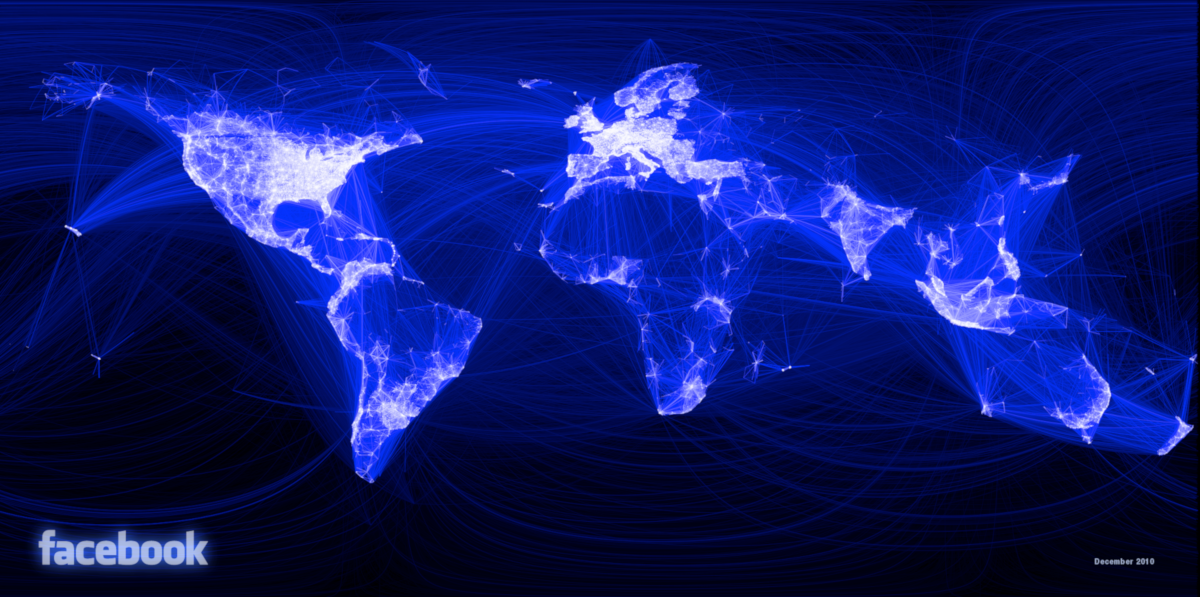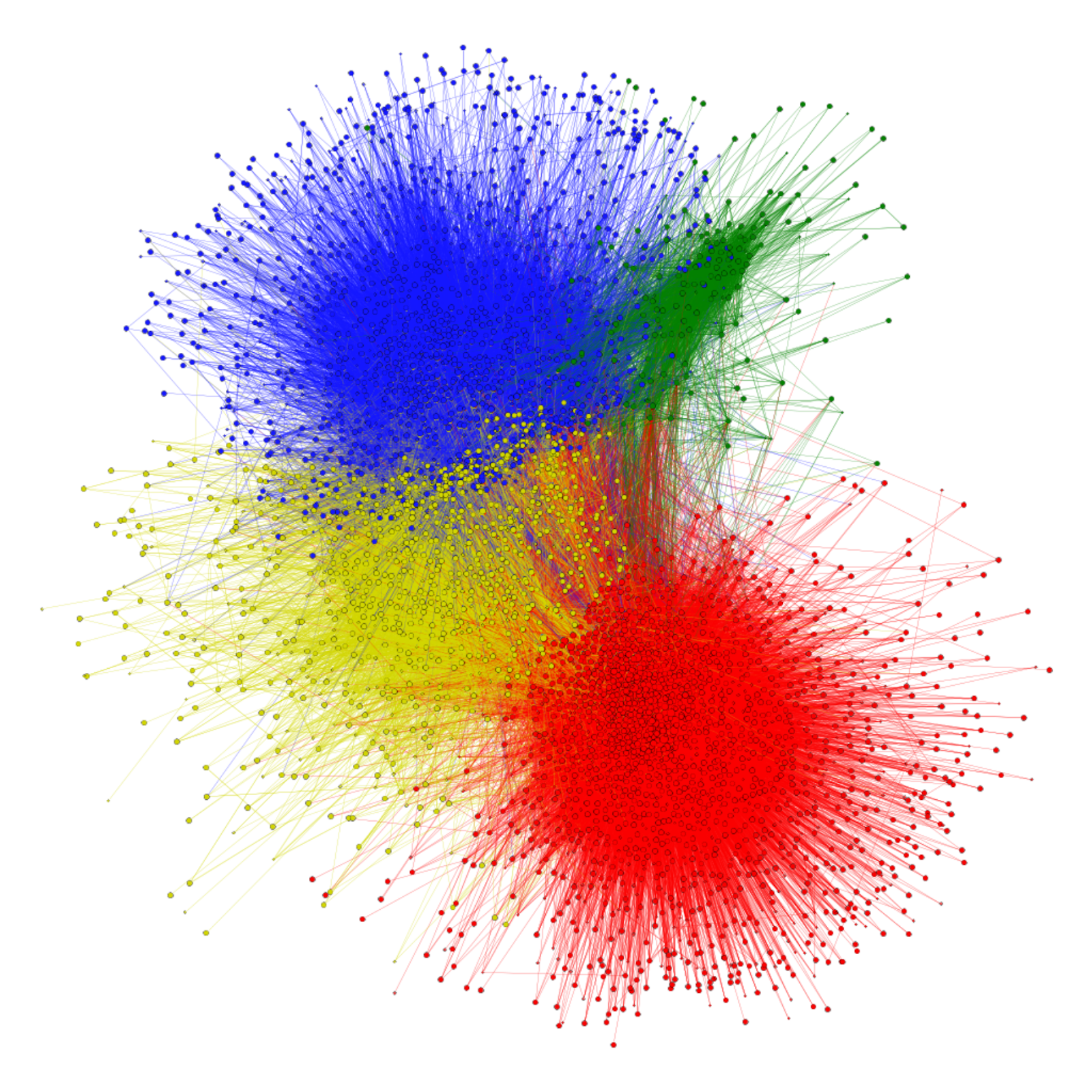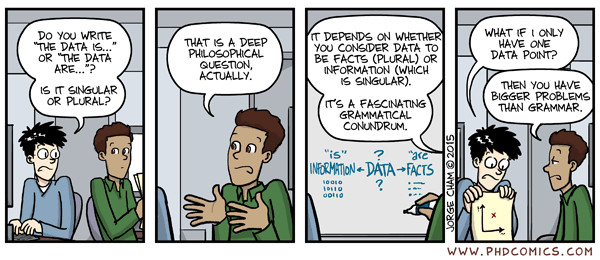class: center, middle, inverse, title-slide .title[ # Introduction to Social Data Science ] .author[ ### David Garcia <br><br> <em>ETH Zurich</em> ] .date[ ### Social Data Science ] --- layout: true <div class="my-footer"><span>David Garcia - Social Data Science - ETH Zurich</span></div> --- # What is the aim of Social Data Science? > The aim of Social Data Science is **the Quantitative Understanding of Human Behavior**. - **Quantitative:** As opposed to qualitative or descriptive, we aim for robust findings grounded in strong evidence that can be quantified. - **Understanding:** Not just predicting, we want to be able to generalize and combine knowledge, and even to motivate interventions or policies. - **Human:** We will not study particles or objects. Measurement validity and ethics will be a challenge. - **Behavior:** Observable changes, structures, dynamics, and patterns; not just stories or theories --- # How are we going to do it? **Retrieving, processing, analyzing, and interpreting Digital traces.** <center>  </center> --- # Another example of digital traces .pull-left[ **Pair up and guess together:** - What kind of traces are show in the figure on the right? - How were they collected? - What can we learn about human behavior with this kind of data? ] .pull-right[.center[]] --- # What is data? > **Data:** Facts in the form of stored and transmittable information. - *Data* is the plural of the Latin word *datum*. *Data* means ”given (things)”. - Data is given to us, it is not fabricated nor simulated.  --- # What is Social Data Science? <div style="float:right"> <img src="https://images.squarespace-cdn.com/content/v1/5150aec6e4b0e340ec52710a/1364352051365-HZAS3CLBF7ABLE3F5OBY/ke17ZwdGBToddI8pDm48kB2M2-8_3EzuSSXvzQBRsa1Zw-zPPgdn4jUwVcJE1ZvWQUxwkmyExglNqGp0IvTJZUJFbgE-7XRK3dMEBRBhUpxPe_8B-x4gq2tfVez1FwLYYZXud0o-3jV-FAs7tmkMHY-a7GzQZKbHRGZboWC-fOc/Data_Science_VD.png" alt="Data Science discipline Venn diagram" width="450px"/> </div> **Data Science** is the application of methods from Computer Science and Statistics to empirical questions and practical problems. **Social Data Science** is the application of Data Science to study human behavior and social interaction. - Importance of combining methods, synthesis, and communication - Gathering digital traces with Computer Science techniques - Analysis interpretation with respect to what is known in the relevant Social Sciences --- background-image: url(VennV2-1.svg) background-size: 97% --- background-image: url(VennV2.svg) background-size: 97% --- # Why digital traces? Data from digital traces have six properties that can complement other traditional data sources in the social sciences: - **Big Data:** Observing large amounts of humans across demographics - **Fast Data:** Quantifying aspects of human behavior in real time - **Long Data:** Retrieving longitudinal data and at various timescales - **Deep Data:** Gathering persistent information on individuals - **Mixed Data:** Combining heterogeneous datasources and unstructured data - **Strange Data:** Locating small subcommunities or deviant behavior --- # What are the limitations of digital traces? With the great potential of digital traces, aslo come great challenges: - **Platform biases:** caused by their design, algorithms, social bots, etc - **Data gatekeepers:** Not everyone can access some data sources - **Performative behavior:** Talking online is not the same as offline. - **Representativity issues:** Not everyone leaves digital traces. - **Observational data:** Testing causal mechanisms is not straightforward. - **The data deluge:** Too much data enables black-box predictions that can be useful but limit our understanding. --- ## The Hype Cycle of Social Data Science <center> <img src="Hype1.svg" width="900" /> --- ## The Hype Cycle of Social Data Science <center> <img src="Hype3.svg" width="900" /> --- ### The importance of questions in Social Data Science  Deep Thought, from the movie version of The Hitchhiker's Guide to the Galaxy. > **Understanding our questions is a prerequisite to understanding their answers.**